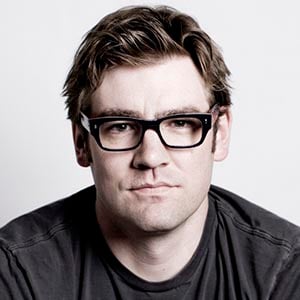 Chris Dixon is a terrific example of an entrepreneur who discovers a need, then creates a solution to fix it. He was working as a computer programmer when he decided that his knowledge of technology could be put to better use working as an investor. He joined Bessemer Venture Partners where he was able to keep an eye on the tech world, with an interest in online security.
Chris Dixon is a terrific example of an entrepreneur who discovers a need, then creates a solution to fix it. He was working as a computer programmer when he decided that his knowledge of technology could be put to better use working as an investor. He joined Bessemer Venture Partners where he was able to keep an eye on the tech world, with an interest in online security.
While at Bessemer, Mr. Dixon noticed a new online threat—phishing—and built an application, FraudEliminator, to help Internet users avoid it. FraudEliminator eventually grew into a more robust security solution called SiteAdvisor, which notified Internet users when they were on a potentially fraudulent or dangerous website. That product was eventually acquired by online security company, McAfee.
Soon after his first successful exit, Chris Dixon joined several other entrepreneurs to form the Founder Collective, a seed stage venture capital fund. He is also the co-founder (with Caterina Fake) of Hunch, which was acquired by eBay in 2011.
Mr. Dixon is one of the top angel investors in the tech world. He currently works for the well-known venture capital firm, Andreessen Horowithz, and advises more than a dozen startups. He’s had a lot to say about what makes a startup successful. Here are a few of the things he has said that we find inspirational:
“The dream of the last century was to own a home. The dream of this century will be to own a company. Working for somebody else is like being a renter for your whole life. In the twenty-first century, we’ll all aspire to own a much larger piece of our lives.”
“Founders have to choose a market long before they have any idea whether they will reach product/market fit. In my opinion, the best predictor of success is whether there is what David Lee calls ‘founder/market fit’. Founder/market fit means the founders have a deep understanding of the market they are entering, and are people who ‘personify their product, business, and ultimately their company’.”
“If you aren’t getting rejected on a daily basis, your goals aren’t ambitious enough.”
“People capable of making enough money to never work again are the same people who will never quit working.”
“If you think you’re going to fire someone over the next six months, you probably will. Don’t wait too long. Too many founders do. It’s better for management and employees if it happens fast.”
“I don’t care if you succeed or fail, if you are Bill Gates or an unknown entrepreneur who gave everything to make it work but didn’t manage to pull through. The important distinction is whether you risked everything, put your life on the line, made commitments to investors, employees, customers and friends, and tried—against all the forces in the world that try to keep new ideas down—to make something new.”
“Startups that fill white spaces [areas where there is latent demand without supply] aren’t usually world-changing companies, but they often have solid exits. They force incumbents to see a demand they had missed, and those incumbents often respond with an acquisition.”
“Founders too often view raising capital as a transaction, when it is actually a very deep relationship. They think of money as money, when there is actually smart money, dumb money, high-integrity money, and low-integrity money.”
“I no longer believe in the wisdom of having remote product development or remote employees. Especially in the early research-and-developmet phase, you need a small group of people rapidly cycling through iterations of your idea. That team needs to meet in a single place, overhear each other’s conversations, and develop the same set of rhythms. Until you try remote development and fail, you simply can’t understand how important ambient learning is.”
—Chris Dixon, Entrepreneur and Angel Investor



